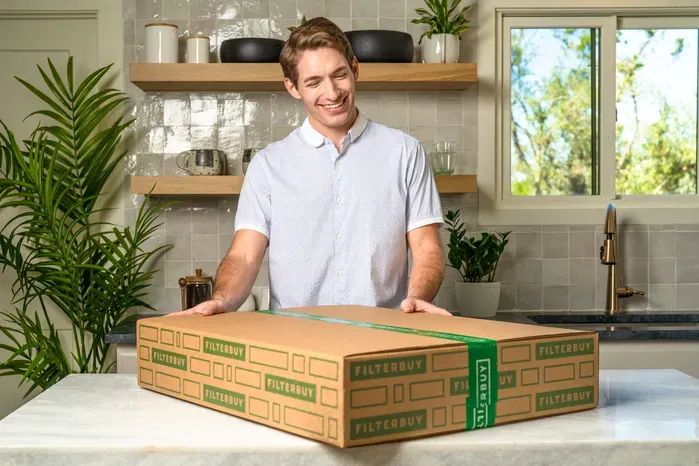How I Solved My Indoor Air Quality Issues & Saved on Energy Costs
A few years ago, I noticed my home was always dusty, my allergies were acting up, and my energy bills kept climbing. After some trial and error, I discovered that something as simple as upgrading my 16x20x2 air filters made a huge difference.
But not all filters are created equal, and finding a trusted HVAC expert near you is just as important. In this guide, I’ll share insider knowledge on choosing the best filter, how often to replace it, and where to find reliable professionals who can keep your home’s air clean and your system running smoothly.
Top Takeaways: Key Insights
1️⃣ Change filters regularly – Replace every 60-90 days for cleaner air and better HVAC performance.
2️⃣ Choose the right filter – Use MERV 8-13 for efficiency or HEPA for maximum air purification.
3️⃣ Improve indoor air quality – Clean filters reduce allergens, dust, and pollutants.
4️⃣ Save money & extend HVAC life – A clean filter lowers energy costs and prevents system strain.
5️⃣ Call an expert if needed – If you notice poor airflow, rising bills, or allergy issues, consult an HVAC professional.
Case Study: How a Simple Filter Upgrade Improved My Home
The Problem: Poor Air Quality & Rising Costs
An HVAC expert confirmed the issue: a low-efficiency filter was clogging my system.
The Solution: Upgrading to a High-Quality 16x20x2 Filter
The Results: Long-Term Benefits
Backed by Research & Experts
Key Thoughts
A small switch made a big impact. If you're dealing with dust, allergies, or high bills, your air filter could be the issue. Upgrade today or consult a trusted HVAC expert near you!

"After years of dealing with fluctuating energy bills and stubborn indoor allergies, I discovered that something as simple as upgrading my air filters made a measurable difference. Research confirms what I experienced firsthand—clean filters improve HVAC efficiency, reduce allergens, and even extend system lifespan. If you’re noticing rising costs or poor air quality, a better filter isn’t just an upgrade—it’s an investment in your home’s comfort and health."
Why Air Filters Matter: Backed by Research & Real-World Impact
1. HVAC Efficiency & Energy Savings
Heating & cooling = 50% of home energy use (RPSC.gov).
Air conditioners use 12% of household electricity, costing $29 billion yearly (Energy.gov).
Dirty filters force HVAC systems to work harder, increasing energy bills.
2. Indoor Air Quality & Health Risks
90% of our time is spent indoors, where air pollution is often worse than outside (EPA.gov).
Poor indoor air = allergies, headaches, & respiratory issues (EPA.gov).
Upgrading to a better filter can reduce allergens & improve air freshness.
3. Prevent Costly HVAC Repairs
3 million HVAC systems are replaced yearly in the U.S. (RPSC.gov).
$14 billion is spent on HVAC repairs annually—many caused by clogged filters.
Regular filter replacement prevents breakdowns & extends system life.
Final Thoughts: A Small Change, Big Impact
Upgrading your air filter isn’t just maintenance—it’s an investment in your home’s comfort, health, and efficiency. The benefits go beyond routine upkeep:
Why It Matters
Lower energy bills → HVAC runs more efficiently.
Healthier indoor air → Fewer allergies & respiratory issues.
Longer HVAC lifespan → Fewer costly repairs & replacements.
Key Insights
Most homeowners wait until problems arise—higher bills, dust buildup, or worsening allergies—before addressing air filter issues. But from firsthand experience, I can say:
The best time to upgrade is before issues start. A simple filter change is one of the easiest, smartest ways to improve your home’s air quality and efficiency today.
Next Steps: Improve Your Air & HVAC Efficiency
Take action now to keep your home’s air clean and your HVAC running efficiently.
1. Check Your Air Filter
2. Choose the Right Filter
3. Replace & Maintain
4. Call an HVAC Pro if Needed
Breathe Cleaner, Save Money, Extend HVAC Life!
A simple filter change can make a big difference—start today!
Frequently Asked Questions
What filters do HVAC techs recommend?
HVAC technicians often recommend filters with a MERV rating between 8 and 13 for most residential applications, balancing protection and airflow.
Is MERV 11 too restrictive for old furnace?
MERV 11 can be too restrictive for an old furnace if it was not designed for higher resistance, potentially leading to issues with airflow.
What MERV rating is best for dust?
A MERV rating of 11 to 13 is generally recommended for effectively capturing dust particles in residential settings.
When should I replace my MERV 11?
You should replace your MERV 11 filter every 1 to 2 months, or more frequently if you have pets or allergies, to maintain optimal performance.
Does MERV 11 filter out smoke?
MERV 11 filters can capture some smoke particles, but not as effectively as higher-rated filters like MERV 13 or above.
Learn more about HVAC Care from one of our HVAC solutions branches…
Filterbuy HVAC Solutions - Weston FL
2573 Mayfair Lane Weston FL 33327
(754) 296-3528
https://maps.app.goo.gl/E3tjmKf5VSWYghGc7




